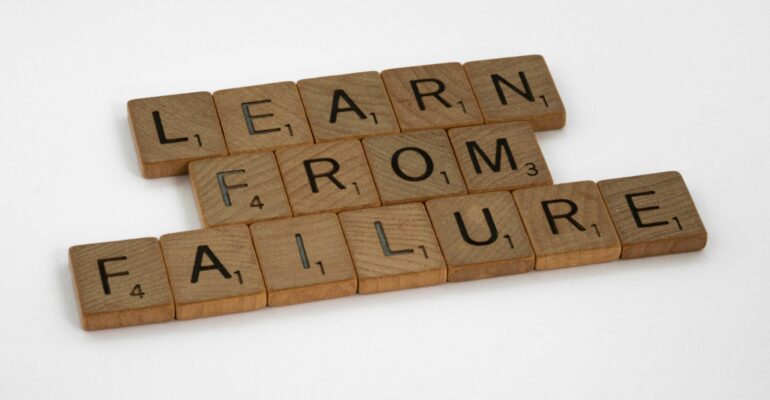Embracing Challenges: Coaching Your Clients to Grow Through Failure
In life, we’re often conditioned to avoid failure as if it were the ultimate villain. But guess what? That couldn’t be further from the truth! Think about it: when everything’s going smoothly, and you’re cruising through life without a care in the world, are you really growing? Probably not. It’s like being stuck in an endless loop of the same old, same old—and that’s no way to evolve because…
🌟 Growth doesn’t happen in your comfort zone. 🌟
The Neuroscience of Failure and Growth
To understand the power of embracing challenges, we must delve into the neuroscience behind learning and growth. When we encounter obstacles, our brains react in ways that can lead to significant personal development. Facing challenges activates the brain’s neuroplasticity—the ability to reorganize itself by forming new neural connections throughout life. This means that our brains are wired to grow, adapt, and change in response to our experiences, particularly when those experiences push us outside our comfort zones.
When individuals encounter a challenge or failure, the brain responds by releasing stress hormones such as cortisol. While high levels of stress can be detrimental, moderate stress can be beneficial. It triggers the brain to activate regions involved in problem-solving and decision-making, including the prefrontal cortex. This area of the brain is crucial for higher-order thinking, helping individuals analyze situations, learn from mistakes, and plan for the future.
Embracing Failure as a Learning Tool
Next time your clients encounter a challenge or find themselves at a crossroads, encourage them not to shy away from it. Embrace it. Lean into it. That challenge is their ticket to growth and progress. As Joseph McClendon III puts it:
“Failure and challenges get a bad rap, but facing setbacks and problems is indeed a sign of progress because that’s how you learn.”
When clients experience setbacks, they can cultivate a growth mindset—the belief that abilities and intelligence can be developed through effort and perseverance. Research shows that individuals with a growth mindset are more resilient and better equipped to face challenges. They see failures as opportunities to learn rather than as personal shortcomings.
The Role of Dopamine in Learning
Moreover, when clients successfully navigate challenges, their brains reward them with a surge of dopamine, a neurotransmitter that plays a significant role in motivation and reinforcement. This pleasurable chemical reinforces the behavior of taking risks and facing obstacles, making them more likely to embrace future challenges. In contrast, avoiding failure leads to a cycle of fear and stagnation, inhibiting personal growth and exploration.
Encouraging clients to reframe their perspective on failure can significantly impact their mental well-being and performance. Help them understand that every setback is not a dead end but a stepping stone toward success. This shift in mindset can reduce anxiety associated with failure and promote a healthier approach to challenges.
Strategies for Coaching Clients Through Failure
As a coach, your role is crucial in helping clients welcome challenges and recognize that each setback is a setup for success. Here are some strategies to guide them in this transformative journey:
- Encourage Reflection: Ask your clients to reflect on past challenges and failures. What did they learn from these experiences? How did those moments shape them? This reflection fosters a deeper understanding of their growth journey.
- Normalize Struggle: Share stories of successful individuals who faced significant failures before achieving their goals. This can help clients realize that struggle is a universal part of the journey.
- Reframe Setbacks: Help clients reframe their perspective on failure. Instead of viewing it as a negative outcome, encourage them to see it as a valuable learning opportunity. Questions like, “What did this teach you?” or “How can you use this experience moving forward?” can be powerful.
- Set Incremental Goals: Encourage clients to set small, achievable goals that lead to larger objectives. Breaking down challenges into manageable steps can reduce overwhelm and build confidence as they achieve each milestone.
- Promote a Supportive Environment: Remind clients of the importance of surrounding themselves with supportive individuals who encourage growth and resilience. A positive environment can enhance motivation and provide essential emotional support during challenging times.
Thriving Through Challenges
By helping clients view obstacles as opportunities for growth and development, you empower them to thrive and embrace the journey of self-improvement. Remember, challenges and failures aren’t roadblocks; they’re essential components of the growth process. Each struggle is a chance for clients to develop new skills, deepen their resilience, and ultimately evolve into a better version of themselves.
In conclusion, embracing challenges is vital for personal growth, backed by the neuroscience of learning and adaptation. As coaches, we have the opportunity to guide our clients through their journeys, helping them navigate the inevitable ups and downs with a mindset that fosters resilience, creativity, and success. When they learn to embrace failure, they unlock their true potential and embark on a fulfilling path of continuous self-improvement. So, let’s encourage our clients to lean into their challenges, celebrate their failures, and recognize that every step—no matter how difficult—is a crucial part of their incredible journey toward success.







